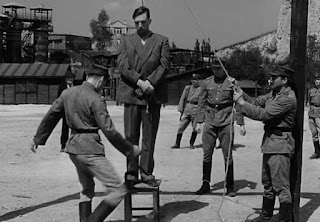Two days before leave, his shelter was hit by a shell... He died a few hours after having rescued his subordinate despite his own injuries... Claude Quayle Lewis Penrose
Two days before leave, his shelter was hit by a shell... He died a few hours after having rescued his subordinate despite his own injuries... Claude Quayle Lewis Penrose
Claude Quayle Lewis Penrose was born in De Soto County, Florida, USA, on 10 August 1893 to Irish parents from Kinsale, Ireland. His father Henry (‘Harry’) was a civil engineer and his mother Mary was a writer.
In 1895 the family travelled to Ireland, landing at Queenstown on 5 April.
In March 1897 the family moved from Ireland to Vine House, Frimley Green, Surrey, and in September 1900 to a house named Nadrid in Frimley Green.
Claude was admitted in 1905 in United Services college Windsor and in 1911 to Royal Military academy Woolwich London.
Claude was gazetted to the Royal Garrison Artillery in 1913.
He was sent to France in 1914 and was mentioned in despatches in the battle of Neuve-Chapelle in march 1915.
In September 1916 he was awarded the military cross after the battle of Combles.
In 1917, he was promoted to Major and given command of the 245th Siege Battery.
He was awarded a bar to his military cross for his action during the retreat of march 1918
Claude was due to have home leave on 3 August 1918, but on 31 July, his command post near St Omer was hit by a shell. After going out of the debris by himself, he rescued his subaltern despite his serious injury. Four hours later he collapsed and was taken to the 2nd Canadian Casualty Clearing Station.
On 1 August 1918, he died from his injuries a few days before his 25th birthday.
He now rest in peace in Esquelbec military cemetery.
After the war his mother published his poems.. some of them written on the Somme front
Claude's picture from findagrave.com












Comments
Post a Comment